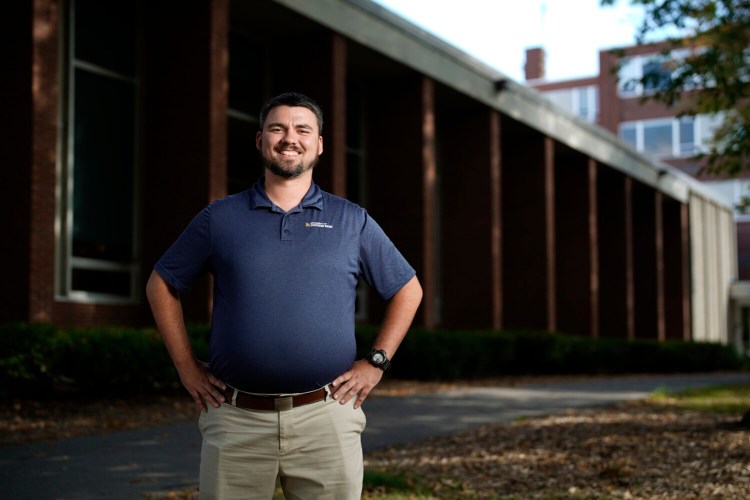When Camden Ege was preparing to leave the Air Force in 2013, he took part in programs the military offers to help those transitioning to civilian life.
Ege said the sessions were fine as far as they went. But they didn’t focus enough on his goal after six years of duty – earning a college degree through the GI Bill.
“It was almost entirely composed of applying for a job and interviewing,” he remembers, with nothing on how to use the bill to get a degree.
So Ege educated himself on what the bill could do to pay for tuition and offer a monthly stipend. He ultimately earned a bachelor’s degree in criminology and master’s degree in leadership and organizational studies from the University of Southern Maine, where he is now assistant director of Veteran’s Services, a position that allows him to pass on what he has learned to other veterans.
The GI Bill, adopted in the last year of World War II, has always been seen as the centerpiece of the nation’s commitment to pay back veterans for their service to the country and to reintegrate them into the civilian ranks.
Each state has an approving agency, which reviews veterans’ post-service plans to make sure they are eligible for the GI Bill. Ege ran the Maine approving agency from 2018 until earlier this year, when the position at USM came open.
The bill and its benefits have undergone changes since the first GI Bill was adopted in 1944 in anticipation of the hundreds of thousands of veterans returning to the U.S. after the war. In addition to education benefits, veterans are also eligible for low-interest rate loans for buying homes, businesses or farms.
In 1966, the bill’s coverage was extended to all veterans, not just those who served in wars, and the benefits were enhanced again in a post-9/11 bill and another package of benefits approved in 2017.
Ege said the current version of the bill is a good deal for veterans. For one thing, he said, it offers a broader definition of higher education – from traditional college to cosmetology school and apprenticeship programs.

The GI Bill has undergone some big changes since it was first signed into law by President Franklin D. Roosevelt in 1944. Most recently, coverage was broadened beyond traditional college studies to include other types of higher education like apprenticeship programs. Robert Clover/Associated Press
“There’s a wide range of ways that a veteran can use the GI bill,” Ege said, and his office at USM works with the local Veterans Center, which offers readjustment services, including counseling, to veterans returning to civilian life.
One major advantage of the post-9/11 GI Bill, he said, is an enhanced housing allowance for veterans in addition to tuition payments. In the Portland area, that comes to about $2,000 a month, enough for a veteran to get a place to live and cover some other living expenses.
That means a vet can concentrate on his or her studies and either be able to forgo a job or take a part-time position with fewer hours. Also, because the bill allows students to take on apprentice positions, the stipend would make it easier to make ends meet on a diminished salary, Ege said.
After the post-9/11 benefits bill was adopted, there was a spike in the number of veterans eager to tap into the aid package, Ege said. But in the last year, there’s been a drop in those leaving the military, largely due to the coronavirus pandemic.
The pandemic created a lot of uncertainty in the job market and many have decided to stay in the military until things settle out, Ege said. At that point, the military should do a better job of explaining the benefits available through the bill, but if it doesn’t he predicts organizations like the one at USM and local veterans’ services group will help.
“It can serve GIs today, but I don’t know if it’s being used as well as it can,” he said.
Send questions/comments to the editors.



